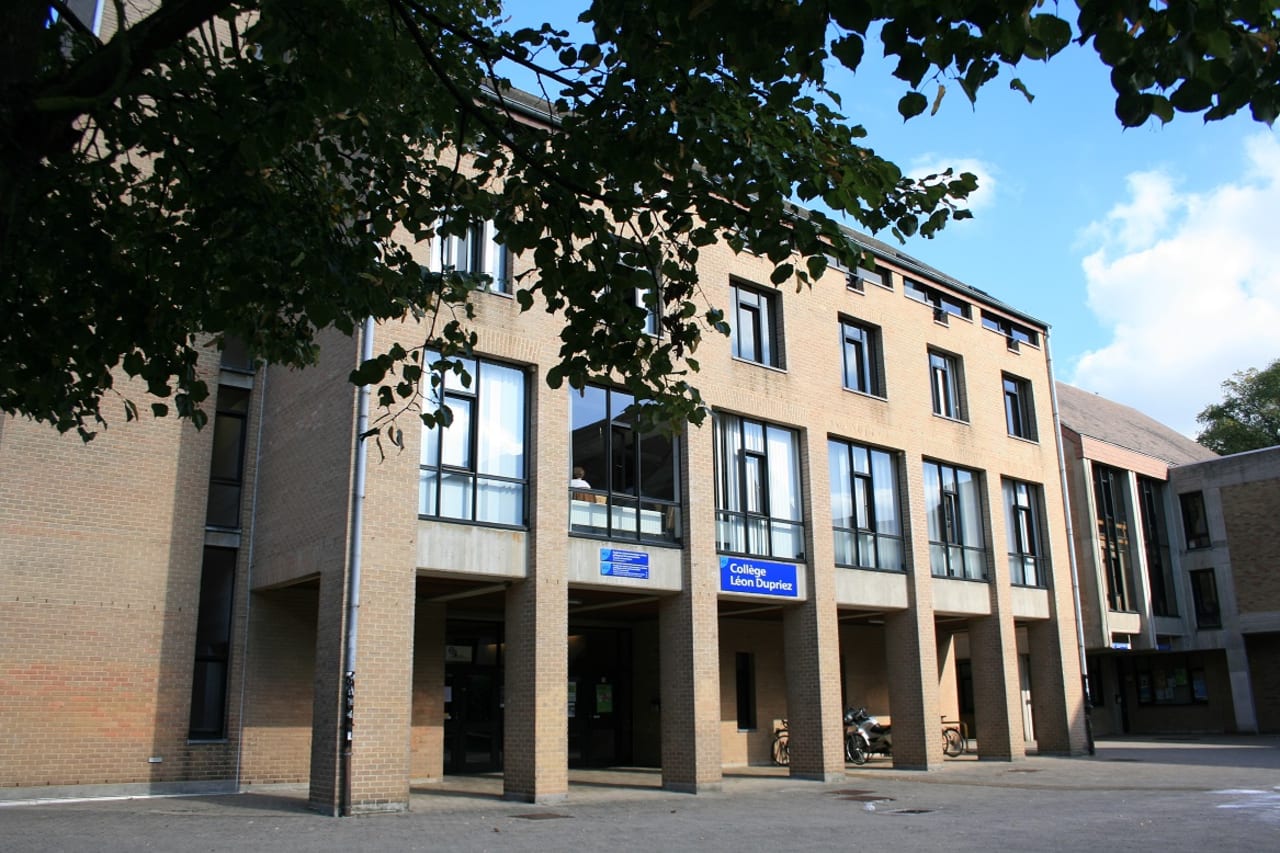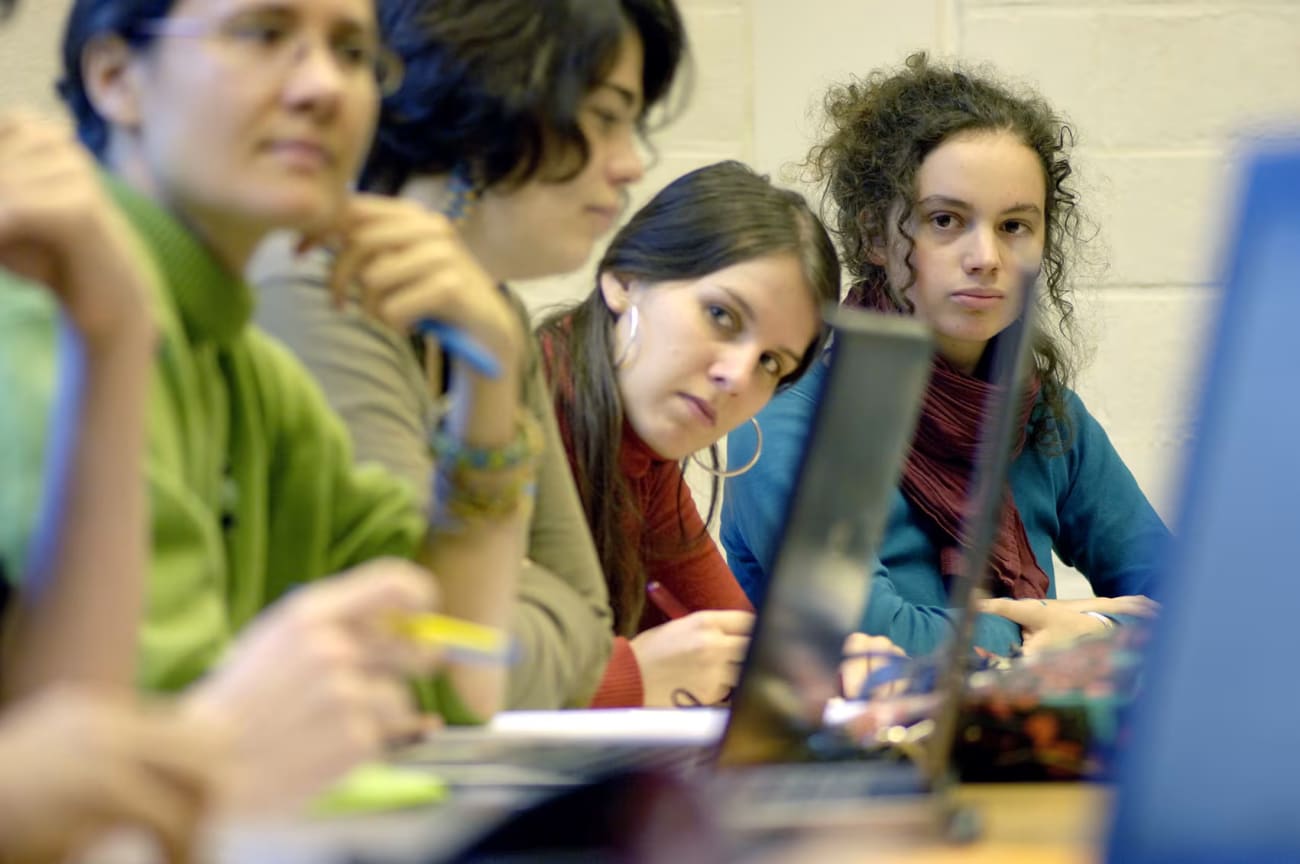
Economics School of Louvain

Introduction
The Economics School of Louvain (ESL) is based at UCLouvain Belgium in Louvain-la-Neuve. It offers top-quality Master's programs in ECONOMICS taught by leading academic professors, offering a wide range of advanced and interdisciplinary courses in Macroeconomics / Public Economics / Labour Economics / Industrial Organisation / International Economics / Family Economics / Development Economics/ Econometrics / Game Theory/ Social Choice Theory / Economics of Poverty / The Economics of the Third Sector/ Behavioural Economics.
ESL provides among the best preparations for Ph.D. programs and high-level professional careers. Alumni praise ESL for the availability of its professors and quality of their teaching.
The Economics School of Louvain builds on the strengths of two of the most prestigious Belgian Universities, namely,
- the Catholic University of Louvain (UCLouvain) &
- the University of Namur (UNamur)
ESL's key assets comprise
- Teaching and research excellence (ESL is in the top 10 in Europe, 1st Belgian economics department in the Tilburg University top 100 worldwide economics schools research ranking)
- A strong international experience: ESL has developed a network of partner universities for exchanges and double/joint degree master programs
- A high level of research underpinning teaching is carried out in internationally renowned centers
Campus Features
UCLouvain is a multi-site university! Louvain-la-Neuve, Brussels Woluwe, Brussels Saint-Louis, Brussels Saint-Gilles, Mons, Tournai, Namur, and Charleroi: eight campuses where UCLouvain offers its training offer close to students. Where she actively develops fundamental and applied research. Where it establishes links with the socio-economic world, for ever greater excellence. Where it welcomes students, Belgian and foreign, artisans of the world of tomorrow.
Louvain-la-Neuve
Located 30 km from Brussels in the heart of Walloon Brabant, the Louvain-la-Neuve site welcomes more than 20,000 students in its eleven faculties.
Created in 1971 by the university, this city is one of the youngest in Europe. A town in the countryside offers an exceptional living environment for students, researchers, professors, and residents. Museums, cinemas, theaters, concert and exhibition halls, swimming pools and sports centers, restaurants and cafes, shops, and green spaces contribute to the quality of its environment.
Its entirely pedestrian urban center promotes easy access to all academic buildings and provides an environment where students, researchers, professors, and residents meet and form a unique social, cultural, and economic fabric.
Living on campus
Student associations
UCLouvain is the institution that welcomes the most students in French-speaking Belgium. Since the creation of the University, students have organized themselves into different groups to liven up the campuses.
These associations allow students to experience a rich and enjoyable university course while developing different extra-academic skills (project management, group work, taking responsibility, etc.).
The University supports and supervises student associations through various regulations, the provision of premises and equipment, or the allocation of subsidies.
Libraries
The libraries of the Catholic University of Louvain are open to everyone, whether you are a student or not. The Louvain Learning Centers network provides you with stimulating places that promote active, collaborative, and experimental learning.
University Restaurants
Are you looking for a healthy, fast, and affordable place to eat? Our self-services are there for you! You will find a daily special, a suggestion, a vegetarian, and a varied menu. In Louvain-La-Neuve, you even have the choice: the Sablon welcomes you with its widest offer and its large spaces while the Galilée will seduce you with its conviviality and its cozy spaces! We regularly offer you new products, such as the Giant burger, Veggies on Thursdays, or homemade croquettes.
Multi-site university
UCLouvain is a multi-site university!
Louvain-la-Neuve, Brussels Woluwe, Brussels Saint-Louis, Brussels Saint-Gilles, Mons, Tournai, Namur, and Charleroi: eight campuses where UCLouvain offers its training offer close to students. Where it actively develops fundamental and applied research. Where it establishes links with the socio-economic world, for ever greater excellence. Where it welcomes students, Belgian and foreign, artisans of the world of tomorrow.
Gallery
Admissions
ADMISSION CONDITIONS FOR OUR MASTERS IN ECONOMICS (RESEARCH, PROFESSIONAL, 1-YEAR)
Access based on application : access may be granted either directly or on the condition of completing additional courses of a maximum of 60 ECTS credits, or refused.
Access after file review means that, based on the complete file submitted, access to the program can:
- either be direct
- or require additional training for a maximum of 60 ECTS credits
- or be refused (if the file does not meet the criteria listed below)
- Students who do not hold one of the academic degree of the Wallonia-Brussels Federation (see above) have the possibility of requesting admission to the master's program in economics (60 or 120) subject to meeting the attached criteria:
- Hold a recognized diploma (ENIC-NARIC centers) attesting the successful completion of a first-cycle academic degree in economics or similar and have obtained at least 60% (or 12/20) average overall successful academic years at their home university
- Have validated - within the last 7 years - all or most of the subjects considered as prerequisites for access to the master's program in economics, namely
o Microeconomics
o Macroeconomics
o Statistics in economics and management II
o Mathematics in economics and management II
o Econometrics
o One among: Public economics, Industrial economics, European economy, Game theory and information economics, other - Prove a good command of English. Proof of aptitude to follow teaching units in English MUST be attached to the admission application file:
- either a university transcript proving that you have successfully completed at least 3 economics courses in English during your previous university career;
- or a proof of passing a B2 level English test of the CEFR: Common European Framework of Reference (Common European Framework).
This level results in a TOEFL (iBT) test of at least 79 and an IELTS test of 6.5 (other certified tests are also taken into account).
The admission decision will also consider the general quality of the admission file, the dates of obtaining the prerequisites in economics, the curriculum vitae, the motivation and the complete background of the student. These eligibility criteria are necessary but not sufficient.
However, this may be waived subject to significant and duly certified quality professional experience (upon jury decision).
In addition to these conditions, add:
For the ECON2MD - Teaching focus :
Students wishing to access the didactic aim MUST provide proof of sufficient mastery of the French language (level C1 of the CEFR: Common European Framework of Reference)).
For ETRI2MA - Research focus::
o The academic manager of the program determines, based on the file, any additional training that the student MUST add to the master's program.
o Students who wish to participate in the international degree program Erasmus Mundus Joint Master Degree QEM (the “Master in Models and Methods of Quantitative Economics”) MUST also fulfill the conditions specific to this program.
Visa Requirements
Immigration / Visa
For students, researchers, and lecturers who are staying for more than three months:
- Citizens of the European Union, Iceland, Liechtenstein, Monaco, Norway, or Switzerland do not need a visa.
- Citizens of any other country have to apply for a visa at the home country’s Belgian embassy or consulate as soon as possible.
Regardless of nationality, individuals who are staying for more than three months are required to register with the municipality (‘Administration communale’, often spoken of simply as the ‘commune’) of residence within eight days of arrival in Belgium. This registration is valid for one year (five years for EU nationals) and must be resubmitted for renewal one month before its expiration
Researchers and lecturers employed by UCLouvain may also require a Belgian work permit.
Alumni Statistics
Rankings
UCLouvain has moved up 15 places to 180th in the world in the QS World University Rankings 2024. It remains the top-ranked French-speaking Belgian university. Its strengths? Research and the employability of its graduates.
UCLouvain has jumped 15 places to 180th position in the QS World University Rankings 2024 while remaining Belgium’s leading French-speaking university. It is in the top 12% of universities worldwide according to QS ranking criteria, which, along with the Times Higher Education (THE) and Shanghai rankings, is one of the most reputed. To be in this top group is quite an achievement, given the ever-increasing number of institutions being assessed.
Since its inclusion in the QS rankings, UCLouvain, despite strong international competition, has always been in the top 200, among universities with much greater teaching and research resources.
Two elements distinguish UCLouvain, according to the QS rankings. Firstly, the employment rate of its graduates, at 89%, proves that UCLouvain’s courses meet the needs of the professional world. In Belgium, the UCLouvain diploma remains an indicator of excellence, with UCLouvain among the top three Belgian universities with the best reputations among employers.
Secondly, the excellence of its research exceeds the world average. The QS ranking highlights UCLouvain’s active participation in international research networks and the number of citations of its researchers, where it also features in the Belgian top three.
For its 2024 edition, the QS rankings evaluated 2,963 higher education institutions in 104 countries, of which 1,499 made it into the rankings. Nine Belgian universities are included. The evaluation criteria are as follows:
- Research and development (worth 50%). This includes academic reputation (30%), measured by an international survey, and the number of scientific citations (20%), which aims to assess the impact of research within universities.
- Employability (20%). This is measured by a reputation survey of employers (15%) and the percentage of graduates in employment (5%).
- Academic supervision (10%). Number of academics about the number of students enrolled. This criterion is unfavorable to Belgian universities, which aim to be accessible to all and whose financial resources cannot be increased.
- International commitment (15%). Measures the international outlook of universities via their attractiveness to international students and academics (10%) and their participation in international research networks (5%).
- Sustainable development (5%). Assesses the social and environmental impact of universities.

